Search
Did you mean: Plato?
Remove Ads
Advertisement
Summary 
Loading AI-generated summary based on World History Encyclopedia articles ...
Search Results
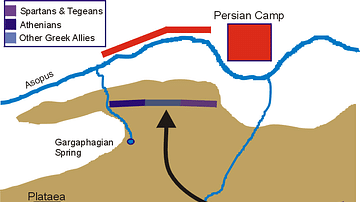
Definition
Battle of Plataea
The Battle of Plataea was a land battle between Greeks and Persians near the small town of Plataea in Boeotia in 479 BCE. Following up their naval victory at the Battle of Salamis in September 480 BCE against the same enemy, the Greeks again...

Image
Plataea 479 BCE
The initial positions of the Greek (blue/purple) and Persian (red) armies prior to the Battle of Plataea in August 479 BCE. The two armies were separated by the river Asopus. Also indicated are the Persian fortified camp, the town of Plataea...
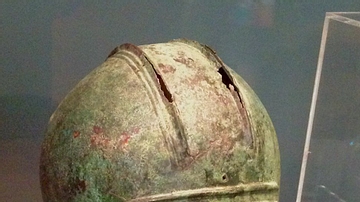
Image
Illyrian Helmet from the Battle of Plataea
This helmet, beaten from a single sheet of bronze, features hammered out (repoussé) ridges along the top. The Illyrian type is found in mainland Greece and former Yugoslavia, dating from the 6th to early 5th century BCE. It was reportedly...
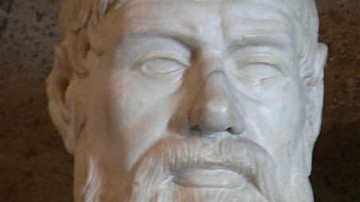
Definition
Pausanias (General)
Pausanias (c. 510 - c. 465 BCE) was a Spartan regent and general who won glory by leading a combined Greek force to victory over the Persians at the Battle of Plataea in 479 BCE. Famously immodest regarding his own talent, he was beset by...
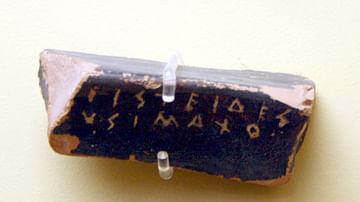
Definition
Aristides
Aristides (520s – c. 467 BCE) was an Athenian statesman and military commander who gained the honorific title 'the Just' through his consistent selfless behaviour in public office. Although ostracized by the Athenian assembly, Aristides returned...
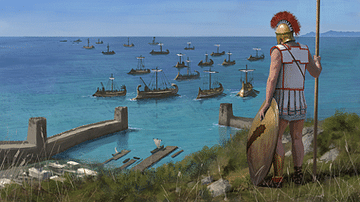
Definition
Persian Wars
The Persian Wars refers to the conflict between Greece and Persia in the 5th century BCE which involved two invasions by the latter in 490 and 480 BCE. Several of the most famous and significant battles in history were fought during the Wars...
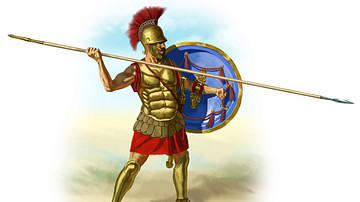
Definition
Hoplite - The Key Infantry Soldier of Ancient Greece
A hoplite (from ta hopla meaning tool or equipment) was the most common type of heavily armed foot-soldier in ancient Greece from the 7th to 4th centuries BCE, and most ordinary citizens of Greek city-states with sufficient means were expected...

Definition
Sparta
Sparta was one of the most important city-states in ancient Greece and was famous for its military prowess. The professional and well-trained Spartan hoplites with their distinctive red cloaks and long hair were probably the best and most...

Article
Pericles & the Restoration of the Athenian Agora
The agora of Athens developed from the 6th century BCE until it was destroyed in the Persian invasion of 480 BCE. Afterwards, the statesman Pericles (l. 495-429 BCE) used funds from the Delian League to restore it as the physical manifestation...
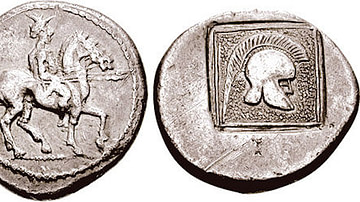
Definition
Alexander I the Philhellene
Alexander I of Macedon, also known as Alexander I the Philhellene ('friend of the Greeks') or 'The Wealthy', was king of ancient Macedon from around 498 to 454 BCE. He is known for the role he played in the second Persian invasion of Greece...